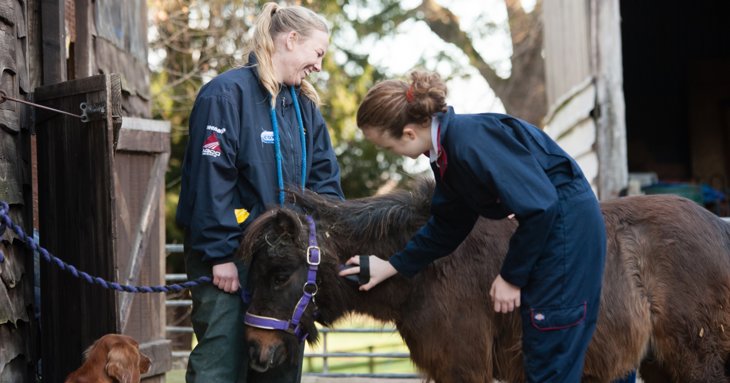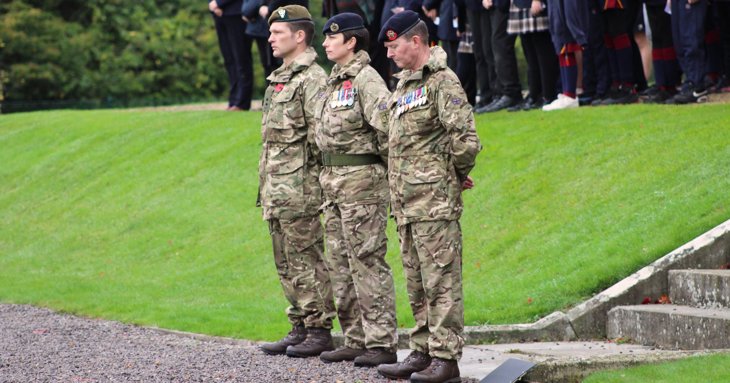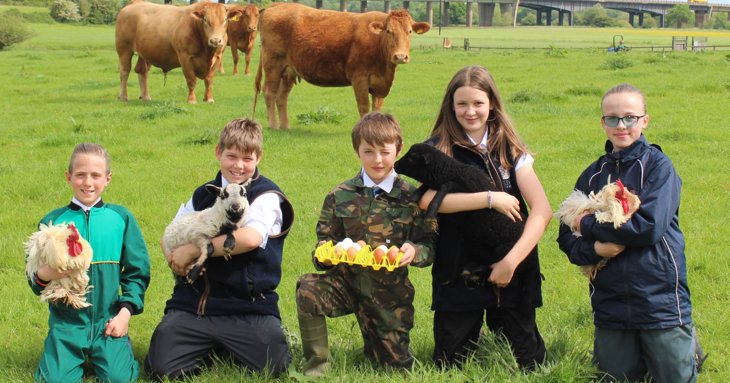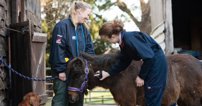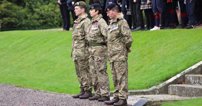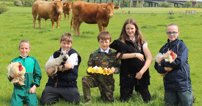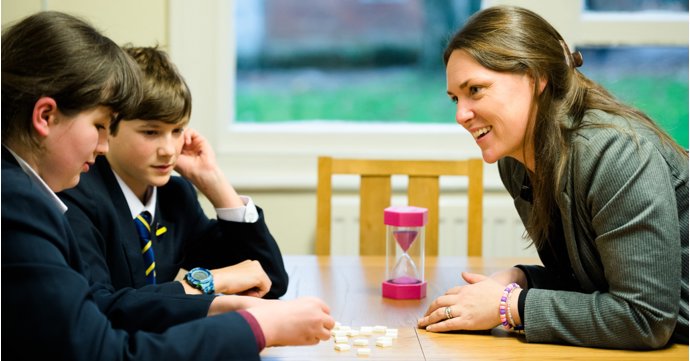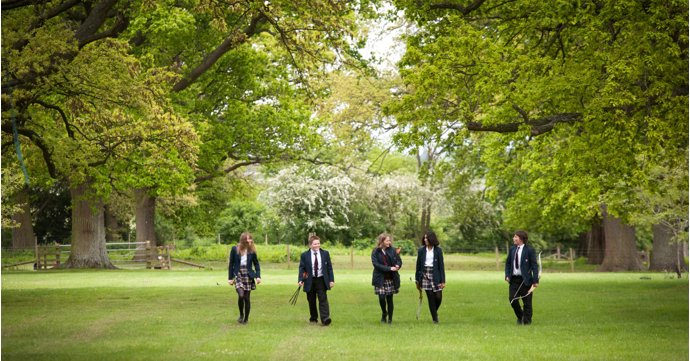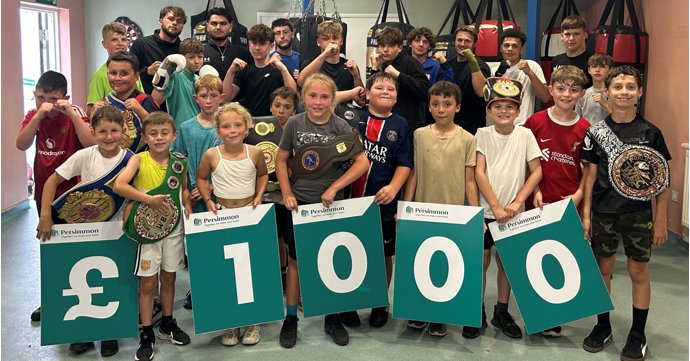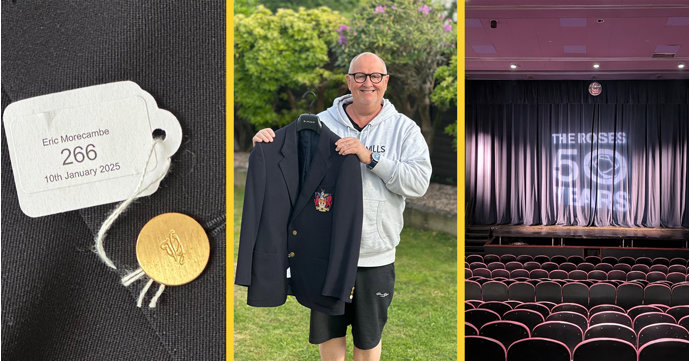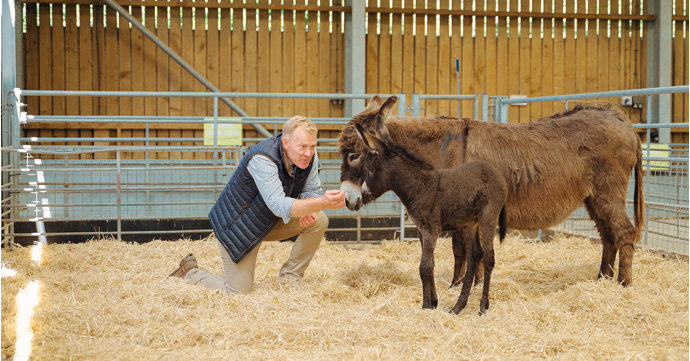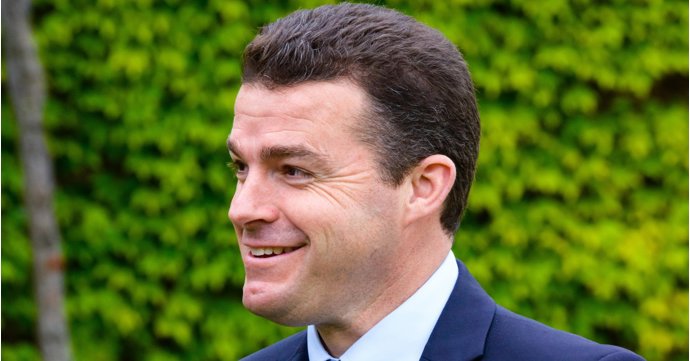Learning is so much more than books and sums at Bredon School, with staff helping to make outdoor learning a core part of its educational offering — from lessons on the working farm, to military drills and adventure training in its Combined Cadet Force (CCF).
Supplementing its curriculum with exciting opportunities to learn new skills in the fresh air, SoGlos caught up with staff from Bredon School's on-site farm and thriving CCF to find out more about its unique educational offering.
Meet the experts - Miss Gina Lamb and Miss Charmain Eaton from Bredon School
Miss Gina Lamb is a teacher of land based studies at Bredon School. Growing up on her family farm in Northumberland, with a working knowledge of beef herding, arable and contracting, she studied agriculture at university and worked as a livestock technician, before becoming a lecturer and teacher.
Miss Charmain Eaton is head of uniformed services and the CCF at Bredon School. In addition to her extensive experience in the education industry, with some of her previous roles including safeguarding lead and head of year, she has also served as a British Army Royal Engineer in various locations across the UK and overseas for 26 years.
Outdoor education has always been a key part of Bredon
School’s offering. Why do you think learning outside the classroom important?
Miss Lamb: A lot of students can struggle within the confinement of a classroom setting and it gives them the ability to shine! They not only learn, but can appreciate the use of maths, science and English in a real-world setting — it's learning with a purpose.
On the school farm, we need maths to be able to calculate feed rations or to work out how much a fencing job is going to cost. And other subjects use the farm to teach, too. We recently had the science department come down to learn about genes, selective breeding and differentiations within breeds. We have our catering students come and see how their food is grown and help in the allotments.
The farm teaches our students how to work with animals and learn how to respect them, too.
Miss Eaton: The vision of the CCF at Bredon School is one of support, development and empowerment. Our overarching goal is to foster the development of personal responsibility, leadership and self discipline; while instilling belief into the cadets that they can achieve, thereby enabling courage and building resilience.
Every cadet uses the CCF as a vehicle to build self confidence, broaden their horizons and learn new skills while having fun.
Miss Lamb, can you describe what a day on the school farm looks like?
What sort of activities do pupils get involved in?
Miss Lamb: We're really lucky that our students love the farm. The jobs we do depend largely on the time of year and what falls on our flock or herd calendar.
The day starts at 7.30am. Students arrive before school starts to help with essential tasks like feeding and mucking out the animals, which means we can spend our daily lessons learning about them and their needs. For example, we might be out doing health checks with our Year 8 pupils one lesson, then treating sheep feet the next. We may be electric fencing a paddock for the ponies or putting up a spots and rail fence for the cattle.
Our students return for the poultry club at break, where they feed, muck out and collect their eggs to be sold at lunch time. More often than not this includes checking on the broody hen or the incubators.
The students come back after a quick lunch for the farm club, where they might be completing a project on the farm. Recently we saw our students training our show animals, which involves putting halters on them and walking them around the school site. The afternoon would include another round of feeding and watering the allotments, with three more lessons on the farm.
Depending on the time of year, the students get involved with everything from feeding to shearing, lambing and worming. It’s not uncommon at lambing time to have a student from boarding doing our midnight checks.
Miss Eaton, what about an average day in the CCF?
Miss Eaton: It's very varied. Some of the activities our cadets participate in include fieldcraft, foot drill, shooting and physical training. They also have the opportunity to attend various adventurous training, such as rock climbing, winter mountaineering, kayaking, skiing, mountain biking and more.
Since September 2021, we have improved our offering and have introduced an enriched curriculum which
has included everything from first aid, navigation, self-defence and target indication; to observational skills,
introduction to the military swim test, section battle drills, camouflage and
concealment.
We've also had ambush drills, interest talks from external professionals and the cadets are taught how to teach too, through the instructional techniques (CFIT) course.
How does the CCF and the uniformed services course help students to gain transferable skills?
Miss Eaton: To assist with the development of our cadets, our training is centred around a set of core values and standards, which we apply to all scenarios and training. These are: courage; discipline; respect for others; integrity; loyalty; and selfless commitment.
We believe that promoting these core values and standards will enable our cadets to build resilience, be self-reliant, better communicators, improve their confidence and promote responsibility — thus preparing them for life after Bredon.
We want to inspire them to achieve success in life and for them to leave Bredon with the qualities and transferable skills to enable them to be a good citizen.
As well as giving them access to enrichment opportunities, promoting our core values and ensuring that they achieve academically, we also give them the opportunity to gain accredited, nationally-recognised qualifications which will allow them to apply for jobs from the age of 16. Currently, we offer qualifications in first aid, lifeguard training, health and safety and basic food hygiene.
Can you describe
why relevant and applied learning is important in education, and how the CCF
and uniformed services course is an example of
this?
Miss Eaton: Within the CCF, we believe it is our responsibility to provide unique and applied learning opportunities for each and every cadet, as well as to foster meaningful and reciprocal opportunities. Through these opportunities, cadets are able to apply knowledge and skills learned in the traditional classroom setting to experiential and real-life environments. As well as instilling the core values, we also develop problem-solving, leadership, organisational, team working and communication skills, to name but a few.
At Bredon School, education is not limited to the classroom. Many departments, including farm, outdoor education, sport and CCF, have an enriched experiential curriculum because we believe it will help our students better connect with the theories and knowledge they learn in the classroom.
Miss Lamb, how does work on the farm help to prepare pupils for life
after school?
Miss Lamb: Students can see what needs to be done. They develop a work ethic and take on a role of responsibility. They know what times things need to be done and learn about the importance of time management. They learn respect for the animals and empathy when things don’t go to plan. They have to work as part of a team on so many tasks, and the leadership skills they learn through communication is vital.
How can an outdoor education help to close the attainment gap?
Miss Lamb: It doesn't matter what shape, size, sex, religion or race: every young person should be able to access education, and all students will struggle with one thing or another. It’s how they overcome these problems that will help shape their future. Most of our students have dyslexia or associated learning differences; this does not matter to a cow and certainly doesn’t matter to us! It's amazing to see our students work around tasks and find solutions in ways you would never think. I'll often find myself wondering, 'why didn't I think of that!'
When students struggle to express themselves on a piece of paper, they can often
learn better in a kinaesthetic way. When they realise they can work with their hands
in the outdoors, it’s amazing to see their mood change. We have students who
struggle to focus in class – giving them a task and a team to work with on the farm,
you can see their leadership skills shine through. They will be using what they have
learnt in the classroom in the real world — and more often than not, without realising
they are doing it!


